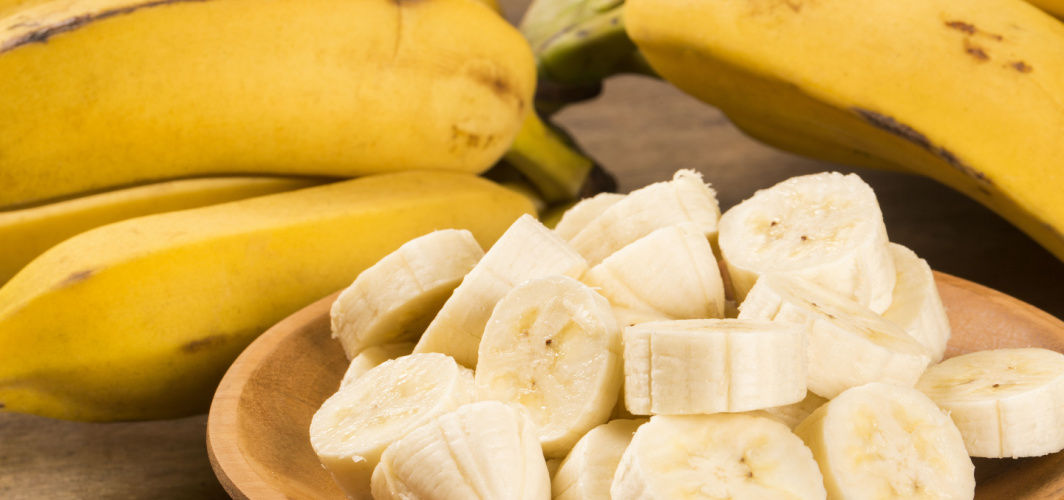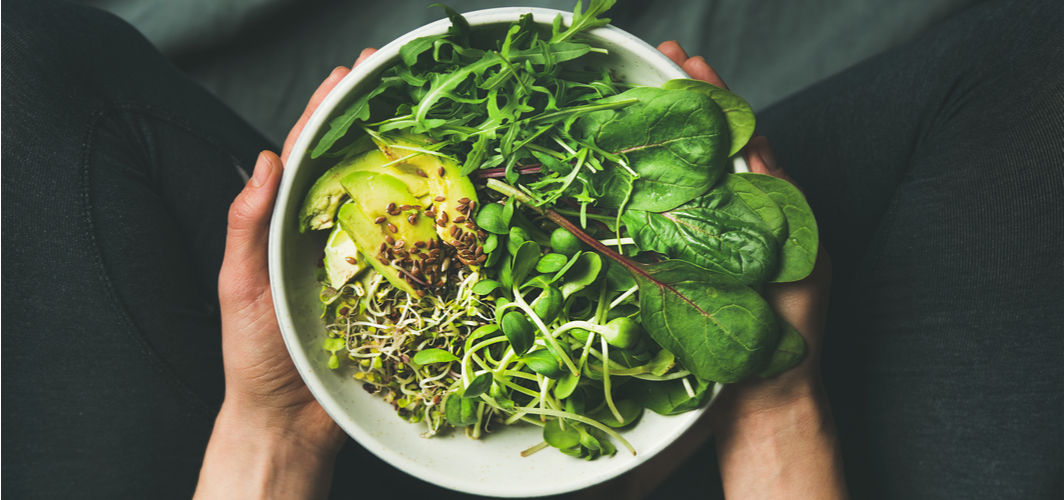Digestive Health
7 Natural Ways to Overcome Acidity
6 min read
By Apollo 24/7, Published on - 15 February 2021, Updated on - 24 May 2023
Share this article
9
99 likes

Many of us have experienced a painful, burning sensation in the lower part of the chest. Often referred to as ‘acidity’, acid reflux is fairly common. In fact, it is so common that most people choose to ignore it. While occasional acidity is nothing to worry about, health experts believe that chronic acidity should not be overlooked.
This is because chronic acid reflux can be an indicator of an underlying medical condition. To prevent the risk of complications later, it is important to know more about acid reflux, and above all, the ways to overcome it naturally.
What is acidity or acid reflux?
Acid reflux is a common condition in which the stomach acid pushes up into the food pipe (esophagus). The condition is characterized by heartburn, a painful and burning sensation in the chest.
The food we consume goes through the esophagus into the stomach. In the stomach, there are gastric glands that create hydrochloric acid to digest the food. When the gastric glands produce more acid than needed, we experience heartburn in the lower chest area.
Occasional acid reflux is completely normal and harmless. However, when it happens too often, stomach acid can burn the inside of the esophagus.
Symptoms of acid reflux
Some of the most common symptoms of acid reflux are:
- A burning sensation in the chest (heartburn), usually after a meal, which might worsen at night
- Pain that intensifies when bending or lying down
- Bitter or acidic taste due to regurgitation of food/sour liquid
- Sore throat
- Difficulty in swallowing food
Recommended Read: Could Tonsilitis Be Causing That Sore Throat?
Factors that contribute to acid reflux
There are certain foods and beverages that are known to trigger acid reflux. Some of those are:
- Fried and spicy foods
- Alcoholic, carbonated and caffeinated beverages
- Citrus fruits and juices
- Tomatoes and tomato ketchup
- Onions
- Chocolate
- Peppermint
Other factors that can cause or aggravate acid reflux are frequent consumption of large or fatty meals, lying down immediately after having a meal, constipation, smoking, obesity, pregnancy, hiatal hernia (a condition in which the upper part of the stomach bulges up into the diaphragm).
Complications associated with acid reflux
When acid reflux occurs more than twice a week, then it is diagnosed as GERD (Gastroesophageal reflux disease). GERD is a chronic and more severe form of acid reflux that can cause inflammation in the esophagus. Over time, GERD can severely damage the esophagus and increase the risk of Barrett's esophagus (a condition characterized by precancerous changes in the esophagus).
Ways to relieve acid reflux naturally
There are a number of proven and effective natural ways to ease the symptoms of acid reflux. The most common ones are:
1. Avoid overeating
One of the most effective ways to minimize acid reflux is to avoid the intake of large meals. In humans, there is a ring-like muscle called the lower esophageal sphincter that connects the esophagus to the stomach. A healthy lower esophageal sphincter is supposed to work like a valve that prevents the stomach acid from flowing up into the esophagus. However, in people with acid reflux, the lower esophageal sphincter becomes dysfunctional or weak. As a result, the acid in the stomach is able to squeeze through its opening.
In most cases, acid reflux occurs when too much pressure on the lower esophageal sphincter. Since acid reflux usually takes place or increases after a meal, larger meals seem to worsen the symptoms.
2. Lose weight
Losing weight should be one of the top priorities of people who experience acid reflux. In humans, there is a thin and large skeletal muscle called the diaphragm that separates the chest cavity from the abdomen. In healthy individuals, the lower esophageal sphincter gets support from the diaphragm. This helps prevent the leakage of excess stomach acid into the esophagus.
However, in obese and overweight people, the pressure in the abdomen can become high enough to push the lower esophageal sphincter upward, away from the support offered by the diaphragm. This condition is known as hiatus hernia. The condition is one of the major causes of acid reflux in obese and overweight individuals.
3. Reduce intake of alcohol
Excessive intake of alcoholic beverages can worsen the symptoms of acid reflux by increasing the amount of acid in the stomach and by relaxing the opening of the lower esophageal sphincter muscle. Consumption of alcohol can also adversely affect the ability of the esophagus to get rid of the acid. Limiting the intake of alcohol can significantly ease the symptoms of acid reflux.
4. Avoid carbonated beverages
People who experience frequent acid reflux are often advised to restrict their intake of carbonated drinks. According to studies, the intake of carbonated beverages is associated with an increased risk of acid reflux. Available scientific evidence suggests that carbonated beverages such as cola impair the functioning of the lower esophageal sphincter. The CO2 gas in carbonated beverages causes people to belch more. As people belch more, the amount of stomach acid entering into the esophagus increases.
5. Drink less citrus juice
According to studies, citrus juices like orange juice or grapefruit juice do not cause acid reflux themselves. However, they can temporarily worsen the symptoms such as heartburn in people experiencing acid reflux. It is believed that some of the constituents found in orange juice irritate the lining of the esophagus. Therefore, it is recommended that people who experience symptoms of acid reflux should reduce drink less citrus juices.
6. Limit intake of caffeinated beverages
Several studies have stated that coffee can worsen the symptoms of acid reflux by weakening the lower esophageal sphincter. Multiple theories have been put forward to explain the effects of coffee on acid reflux.
- Caffeine might be responsible for coffee’s effects on acid reflux
- The way coffee is processed and prepared might be responsible for worsening acid reflux symptoms
- Coffee can increase the duration of acid reflux episodes between meals
Irrespective of the underlying mechanism, people who experience worsening acid reflux symptoms after drinking coffee should limit their intake.
7. Improve sleeping habits and pattern
Certain sleeping patterns and habits are believed to play a pivotal role in easing the symptoms of acid reflux at night. These include:
- Elevate the head of your bedding
According to researchers, elevating the head of the bed can help reduce the episodes and symptoms of acid reflux at night.
- Avoid meals within 2 to 3 hours of going to sleep
Multiple studies have found that having a meal close to sleeping time is linked to a higher risk of acid reflux symptoms at night.
- Sleep on your left side
When an individual sleeps on his/her right side, the lower esophageal sphincter gets covered in stomach acid. This can increase the likelihood of stomach acid leaking through the sphincter and causing reflux. While it may not be entirely practical, however, sleeping on the left side can reduce the risk of acid reflux to a great extent.
Conclusion
Acid reflux is a common problem. Many of us would have experienced it at some point in our lives. Often acid reflux is nothing to worry about. Nevertheless, people who experience severe episodes of acid reflux more than twice a week should make the necessary changes to their lifestyle and diet. Following the measures discussed above can help such people relieve the symptoms of acid reflux naturally.
Digestive Health
Leave Comment
Recommended for you

Digestive Health
Is Banana Good for Loose Motion: Get Experts' Advice
Discover how bananas can help alleviate loose motions and provide relief from diarrhea. Rich in prebiotics and fiber, bananas promote a healthier digestive system, firm up stools, and restore energy. Learn about other recommended foods and those to avoid, along with tips for incorporating bananas into your diet during loose motions.

Digestive Health
How to Identify Abdominal Pain Caused by Gallstones
Sudden, severe pain in the upper right abdomen, fever, or yellow skin, could indicate the presence of gallstones. These stones are usually made up of cholesterol and develop in the gallbladder.

Digestive Health
बवासीर को घर पर ही प्राकृतिक तरीके से ठीक कैसे करें
बवासीर को का अर्थ होता है गुदाद्वार या फिर निचले मलाशय में नसों में सूजन और जलन का हो जाना। मलत्याग करते समय व्यक्ति के मलाशय से रक्तस्राव एवं दर्द होता है। जानिए इस बीमारी के बारे मे।
Subscribe
Sign up for our free Health Library Daily Newsletter
Get doctor-approved health tips, news, and more.
Visual Stories

Hidden Health Benefits in a Bowl of Salad
Tap to continue exploring
Recommended for you

Digestive Health
Is Banana Good for Loose Motion: Get Experts' Advice
Discover how bananas can help alleviate loose motions and provide relief from diarrhea. Rich in prebiotics and fiber, bananas promote a healthier digestive system, firm up stools, and restore energy. Learn about other recommended foods and those to avoid, along with tips for incorporating bananas into your diet during loose motions.

Digestive Health
How to Identify Abdominal Pain Caused by Gallstones
Sudden, severe pain in the upper right abdomen, fever, or yellow skin, could indicate the presence of gallstones. These stones are usually made up of cholesterol and develop in the gallbladder.

Digestive Health
बवासीर को घर पर ही प्राकृतिक तरीके से ठीक कैसे करें
बवासीर को का अर्थ होता है गुदाद्वार या फिर निचले मलाशय में नसों में सूजन और जलन का हो जाना। मलत्याग करते समय व्यक्ति के मलाशय से रक्तस्राव एवं दर्द होता है। जानिए इस बीमारी के बारे मे।